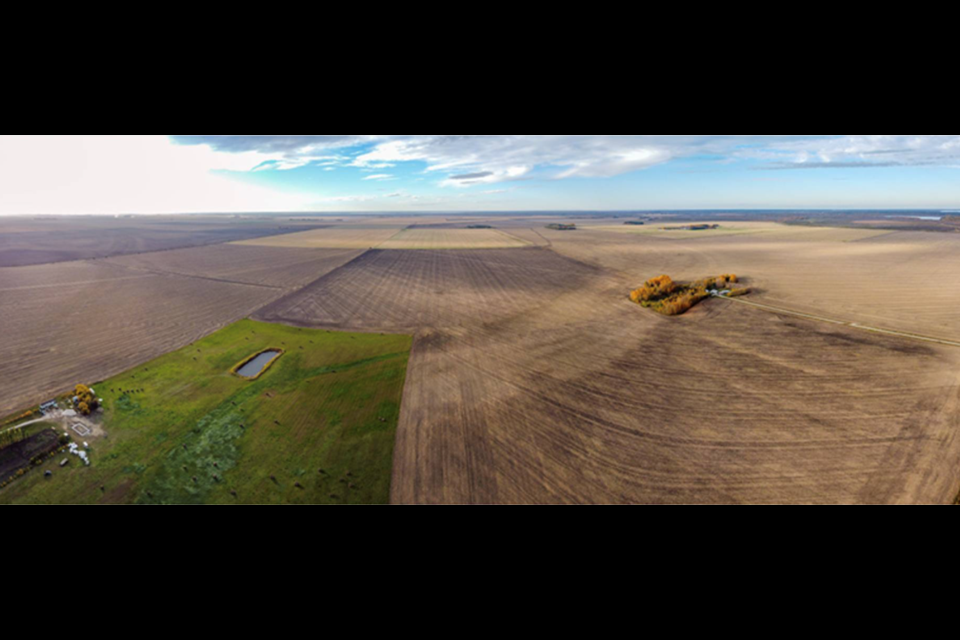Ritchie Bros. can expect to have neighbouring farmers leading the bidding when it presents a series of farmland auctions this spring across the Prairie provinces, based on trends reported at a U.S. agricultural conference
Farmers cause farmland prices to rise but non-farmer investors stop land values from falling too much, say two real estate professionals based in the U.S. Midwest.
“Farmers drive the market,” said Howard Halderman, president of Halderman Farm Management Service of Wabash, Indiana.
“I tend to think it’s farmers paying the highest prices.”
R.D. Schrader of Indiana-based Schrader Auction Company agreed, seeing non-farmer investors as providing stability and bottom side protection to the market, not as the primary drivers of higher farmland prices.
“All of a sudden you’ve got all these investors out there. They may not be willing to pay the premium that operators will, but there is a lot of investor money sitting on the sidelines looking for an opportunity,” said Schrader, who was on a panel with Halderman at Purdue University’s Top Farmer Conference on January 9, 2022.
Their comments apply to land in the central U.S. Midwest, but they are suspected to apply across Western Canada.
Outside investors have tended to be most significant when crop production margins are thin and farmers are less aggressive in buying farmland.
Before 2004, Schrader said, about 40 percent of sales were to investors, but during the commodity boom years of 2012-14 that share dropped to about 20 percent.
Once crop prices fell after 2014 farmers backed off and investors began taking a bigger part of the market. However, in 2021 farmland prices shot higher, and investors didn’t back off.
Halderman said investors have come back to the marketplace.
“We’re selling about half the farms to farmers and half to farmland investors.”
Schrader said investors were more aggressive than usual this year.
“There are buyers out there that know they want to buy farmland, but they don’t have very defined parameters as far as the makeup of the piece they’re looking for or defined price points,” said Schrader.
“It’s an interesting time in the demand we’re seeing out there.”
Still, the top prices continue to come from farmers in most cases.
“A farmer will typically accept a lower rate of return to buy the land next to him because that’s the only time in his life that’s going to come up for sale,” said Halderman.
Most investors aren’t hedge funds or other pools of capital, but local non-farmers who see farmland as a good nearby investment. With land rent varying little year to year, it seems like a good place to put investment money.
“They look at that cash rent as something close to fixed income,” said Schrader.
Upcoming farmland auctions
Ritchie Bros. one of the largest auction houses in the world, is holding a series of farmland auctions across Western Canada this spring.
The action starts March 15 in The Pas, Manitoba where 22 parcels of farmland covering more than 6,000 acres at Marlow Farms go under the hammer during a two-day online auction.
The land includes a home parcel, shop, machine storage buildings, and an automated grain dryer system.
"Our farm is ideally located near a major highway and a locally-owned producer car rail loading site, with provincial water pumps located throughout the valley to assist with drainage," said Walter Marlow, who runs the farm with his brothers Tom and Frank.
On March 25, 12 farmland parcels on 1,912 acres, 1676 of which is cultivated, near Clayton, Saskatchewan go to auction. A quarter-section, 160-acre parcel, in in the Clayton area is priced at around $1,000 per acre.
On April 14, in a series of auctions, Ritchie Bros will auction off 16 titles of farmland n 50-to-150-acre parcels near Nampa in Alberta’s Peace River area.



